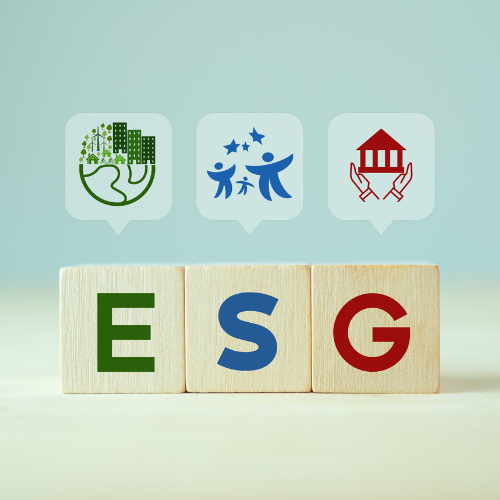Schedule a Chat
Contact Info
Suite 17.03, Level 17
20 Bond Street
Sydney NSW 2000

INSIGHTS WITH EVALESCO
TOPICS DISCUSSED
If you’d like your money to make a difference to the world as well as your future, responsible investing may be for you.
Almost 9 in 10 (89%) Australians feel it’s important their financial institution invests responsibly and ethically across the board (1).
Ethical, social and governance (ESG) investments accounted for $1,281 billion, or 40%, of assets under management in Australia at the end of 20202, growing at 15 times the rate of the overall investment market.
What is responsible investing?
As we continue to battle the extremes of bushfires, drought and floods, consumers are increasingly looking for investment managers to take into account ESG issues as well as financial performance.
While environmental concerns are a hot topic, ESG investing also encompasses social issues and how companies make decisions and manage risks.
How does ESG investing work?
There are plenty of ways investment managers incorporate ESG into their processes – two common methods are negative and positive screening.
How ESG investing can influence returns
A common concern about responsible investing is that incorporating ESG factors into the investment process, or screening out certain companies, may compromise investment performance. But recent research shows responsible investment can make financial sense, with ESG assets under management matching or outperforming mainstream funds over most time frames and asset classes3, despite the impact of COVID-19.
One thing to be aware of is many of these investment options are still relatively new so their long-term performance is hard to gauge at this stage.
What ESG investment options are out there?
If you’re looking to contribute to positive change in the world, the good news is there’s more choice than ever.
The Responsible Investment Association Australasia has now certified over 200 responsible investment products. (2)
But there’s still some way to go to match investment options with consumer preferences. As well as fossil fuels, consumers tend to care most about human rights abuses and animal cruelty, while investment managers offer products that most commonly exclude tobacco and weapons.
How to get started with responsible investing
If you’re considering making the change to ethical investing, or you’re keen to see how your current investments stack up, here are some steps you can take to get started.
With more and more Australians making a conscious decision to invest responsibly and ethically, understanding the options and how to get started is critical. Reach out to your adviser or our team of advisers to discuss what investing responsibly for you looks like.
Source: AMP
1 Responsible Investment Association Australasia, From values to riches 2020 Charting consumer expectations and demand for responsible investing in Australia p5
2 Responsible Investment Association Australasia, Responsible Investment Benchmark Report 2021, p7-p10.
SHARE OUR INSIGHTS
Share on Facebook
Share on Email
Share on Linkedin

NEWSLETTER

Evalesco Financial Services Level 17, 20 Bond Street Sydney NSW 2000
Phone: (02) 9232 6800
The information provided on and made available through this website does not constitute financial product advice. The information is of a general nature only and does not take into account your individual objectives, financial situation or needs. It should not be used, relied upon, or treated as a substitute for specific professional advice. We recommend that you obtain your own independent professional advice before making any decision in relation to your particular requirements or circumstances. Evalesco Financial Services do not warrant the accuracy, completeness or currency of the information provided on and made available through this website. Past performance of any product discussed on this website is not indicative of future performance. Copyright © 2019 Evalesco Financial Services. All rights reserved